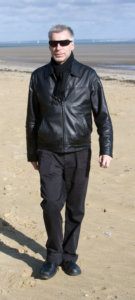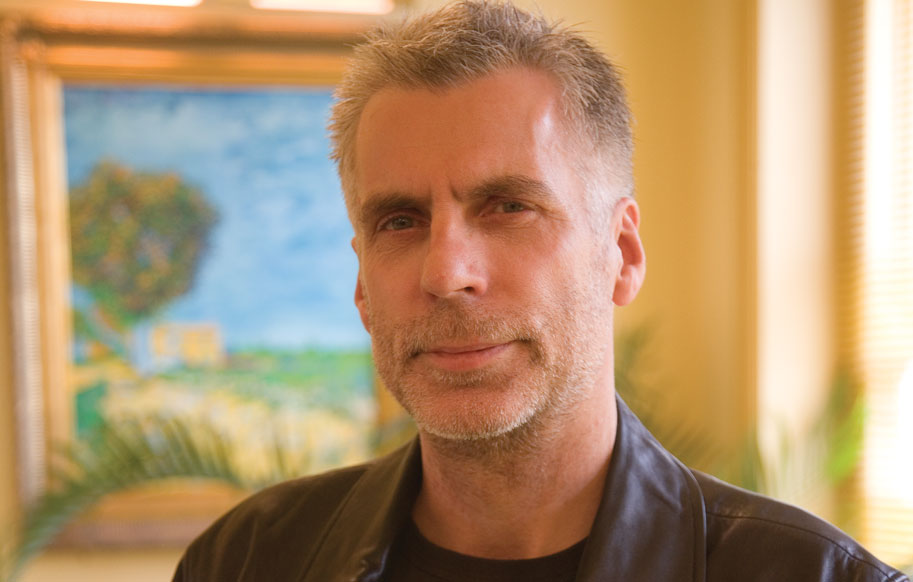 “I would never get married again, and haven’t got a girlfriend. Why would anyone want to go out with me when I’m away half the time?”
“I would never get married again, and haven’t got a girlfriend. Why would anyone want to go out with me when I’m away half the time?”
There’ll be up to 50,000 people there, and countless thousands who will wish that they were. This year’s Isle of Wight Nokia Festival is a sell-out and, with a fabulous line-up and an established reputation, it is on course to replace Glastonbury as this summer’s essential music experience.
But among all the crowds there will be one person who will stand alone. Without him there would be no festival, or certainly not one with the same sizzling brilliance that fans have come to expect from the Isle of Wight.
John Giddings is the managing director of Solo Agency Ltd, who have promoted the festival since it was revived in 2002. There were some who doubted that after 32 years it could ever be the same as it was in the old days, but they were wrong. There were a few early teething troubles, but now the IW festival is firmly back on track.
At 53, John Giddings is not exactly one of the music scene’s young bloods, but it’s experience that counts in this game, and he’s proved himself a great deal cannier than any impertinent upstart. Perhaps the shrewdness was inborn, for his mother was a Scot and knew that if you wanted something, you had to work for it.
But although his mother had been brought up in the strict confines of a Scottish discipline, John and his elder sister, Jennifer, had a much more liberal childhood. He was born in St Albans in 1953 to parents who had met in Portsmouth during the war.
“After the war my father worked as an administrator for the local council in Watford. My parents were lower middle class and not well off. We lived in a council house, although they then bought it for themselves.”
Their determination also achieved a place for John at St Albans School, coincidentally also the alma mater of another old rocker, Sir Tim Rice. “My parents really had to save hard for me to go there. My mother used to do various jobs, one at the local museum. That was horrendous. She used to put little trays of white stuff underneath the dead furry animals, to stop them rotting. I always thought the animals would bite me and was really scared.”
Away from the museum, John showed from an early age that he had plenty of spirit. “The entry exam for St Albans School had algebra questions, and I just wrote on the paper that I could not answer the questions as I hadn’t done any algebra.” Clearly impressed by this no-nonsense reply, the school took him in.
The algebra exam might still stump him today. “I would say that I have common sense, not intelligence. I’m the sort that can join the scouts and make a raft and get from one side of the river to the other. I’m practical. Mind you I can’t paint a house.”
John Giddings is perhaps being over-modest about his intelligence. He clocked up ten ‘O’ levels, three ‘A’ levels and a university degree. “Philosophy & Sociology, whatever that is. I couldn’t get into university to start with because my headmaster wrote on my application form that I couldn’t conform to any authority. When the universities received this, they rejected me. Finally I got an interview at Exeter.”
He was never a great conformist. “The way I chose my course was to put my hand over the list and look down the right-hand side where it said English, Geography, and so on. I selected Philosophy & Sociology. I didn’t know what they were and I still don’t. I just wanted a good time for three years.”
He certainly achieved that. “I had a fantastic time at Exeter. I spent more time on the entertainments committee than I did on the course work. But I was the only person who went to university knowing what they wanted to do afterwards, and that was to join the music industry.”
What he would have liked to have done was to become a pop star. “But then there’s a dawning realisation when you are 16 that you’re not in fact as good as Eric Clapton.”
He joined several bands when he was a teenager. “I was a bass player. But often you’re not actually playing, you’re just hanging around with your mates. One mate said, let’s form a group, you play bass and we’ll pull loads of women. He taught me some bass lines like Sunshine of You Love and Foxy Lady. We weren’t very good, I’m afraid.”
 He even tried his hand at singing. “I don’t know how I had the nerve. I go red thinking about it.” He also blushes at the memory of one less than brilliant performance in a band at university. “We were rehearsing one night and two guys came in and asked if they could listen. They turned out to be John Wetton and Bill Bruford from King Crimson, and it was probably my most embarrassing moment ever. I would never call myself a musician, and I never recorded anything, so you won’t find me on e-bay.”
He even tried his hand at singing. “I don’t know how I had the nerve. I go red thinking about it.” He also blushes at the memory of one less than brilliant performance in a band at university. “We were rehearsing one night and two guys came in and asked if they could listen. They turned out to be John Wetton and Bill Bruford from King Crimson, and it was probably my most embarrassing moment ever. I would never call myself a musician, and I never recorded anything, so you won’t find me on e-bay.”
He might not have been adept as a performer, but he has always been passionate about the music scene. “I suppose what I do now is the closest I can get to it without being in a group. My mate became his college’s social secretary and transformed himself into an agent, and I saw that this was the way to go. I had applied to all these record companies, but of course they had rejected me. So then I called the agents that had dealt with me, and I got a job.”
He was nothing if not keen. “I turned up for the interview, and I’ll never forget the guy saying ‘F*** me, you’ve got a suit on.’ It was the only interview I had ever been to and I thought you had to wear a suit. I looked really stupid. At university, you feel you’re a big fish in a little pond, and then suddenly you become a tiny fish in a huge pond.”
A tiny fish, but one that soon learned to swim extremely well. “My first memory of the job was Malcolm MacLaren coming in, saying he had this band called the Sex Pistols and we would like you to be our agent. We were all laughing at him, because he had a rubber suit on.”
Rubber suits and punk music nonetheless proved a real winner for this enthusiastic young agent. “I was really lucky that I joined in the punk era, because I signed bands like The Adverts and X-Ray Spex. I also brought The Clash in to meet my boss and he bored them to death telling them stories about The Who and how he never signed them.”
John Giddings also quickly got the hang of being a success, learning lessons that have stayed with him throughout his career. “I realised early on that you have to do the job yourself, and that unless you have your own company, it isn’t worth doing anyway. Why work all the hours God made for someone else?”
He is not, however, the completely quintessential businessman. “I’m forever torn between being a businessman or a hippy. Going back and growing mushrooms on Dartmoor is where my heart lies, really. Yeah, I definitely have a hippy-drippy side to me, absolutely.”
Fortunately, there’s a lot of subversive fun associated with the music business and John Giddings enjoyed it all. “It was a fantastically exciting era. For God’s sake, you could go down the road and see the Boomtown Rats playing in a club and then go into the dressing room and say, we’d like to be your agents.”
Often the answer was yes. John’s clients included The Boomtown Rats, Blondie, Iggy Pop and The Ramones. “It was really exciting. That era reinvented the music business. The first time I saw John Lydon, he had a Pink Floyd T-shirt on. He had written ‘I hate Pink Floyd’ above the name, which was sacrilege at the time. The music business was dominated by dinosaur bands like Queen, Pink Floyd, and Genesis. They lasted longer than anyone, though. Look at the Sex Pistols – they only ever made one album, and I’m still their agent.”
Being an agent is not for the slow-witted, and John Giddings soon learned to be the fast mover that he is today. “You had to learn the business very quickly, because in those days your band could have a hit single within four weeks of you signing them. It was fantastic, really exciting.”
He has had some chaotic clients, but his own career has been quite methodical, dividing neatly into five-year stages. He worked for somebody else for five years, then formed a company with a friend. That partnership lasted another five years before he set up his own company, Solo. Five years later, he sold the company. “Then they went bankrupt so I bought it back for five years, sold it, and now I’ve just got it back.”
 It all adds up to 31 years of considerable success, and the Isle of Wight festival has John Giddings firmly at the top of his trade and given him a reputation for getting things done. “I can’t build a PA or a lighting system, but I know a man who can,” he says.
It all adds up to 31 years of considerable success, and the Isle of Wight festival has John Giddings firmly at the top of his trade and given him a reputation for getting things done. “I can’t build a PA or a lighting system, but I know a man who can,” he says.
He says he never had a close mentor, but took things as they came – sometimes with unexpected results. “When I first promoted X-Ray Spex, I went to show them the dressing room. I opened the door and it was the broom cupboard. But you just make it up as you go along. There’s a fine line between being arrogant and being capable. What you have to do is to be capable of what you’re doing, and not go beyond it. If you try and do something you’re not capable of, that’s when you really cock up. You have to find other people to do the bits you can’t do, and one ability I have in my life is that I can motivate people.”
He says he is easy to work for. “I’m too nice to people, so they take the mickey out of me. I find it really hard to be harsh. But what normally happens is that they take the mickey for a certain time, then one day I turn and fire them. They don’t see it coming.”
He’s a shrewd observer of the male-female divide. “I would advise that it’s better to hire women than men. Men try and compete on an ego level. Women are much more efficient, much more willing to work alongside.”
John Giddings recognises the inevitability of greed and ambition in his kind of business, but insists that money does not motivate him. “I used to think I was doing my job for money until I really earned it, and then I realised I was doing it out of pure ambition. The only good thing about money is that it gives you the ability to do things and to be able to tell someone that you don’t want to work with them.”
Money has made him something of an expert on the way it changes people. “It changes your relationship with the artists. At first you’re beholden to them because they pay you to do your job. Then you’re worried about losing them if you say or do the wrong thing. Then you earn some money and you can turn round and tell them to naff off. That’s when they respect you more, because you stood up to them. It’s really strange. Money gives you a power that you didn’t have before.”
He says that his lifestyle is unpretentious. “Although I have got a fast car.”
And though money may give you power and fast cars, it cannot buy you the perfect relationship. John met his wife at university, although they didn’t actually get married for another 27 years. But they did have three children, whom John describes as “wonderful”, and who are now 21, 19 and 17.
Sadly, John’s long-awaited marriage only lasted three years. “The reason for the divorce was that I was away half the time. When we did go to functions together, it was always me, plus one – my wife worked in the Civil Service. People would ask her what she did and then they’d walk away. They were just rude, but in the end it became embarrassing, so she decided not to attend any more functions with me. We ended up leading two separate lives.”
A career as frenetic and risky as John’s is bound to bring a few casualties in its work. But he’s also had plenty of luck, and plenty of the rewards that he deserves. And one of the top prizes will be the sight of 50,000 people revelling in this year’s Isle of Wight Festival, an event that has been made possible by a man who can’t do algebra but knows a good formula when he sees one.



